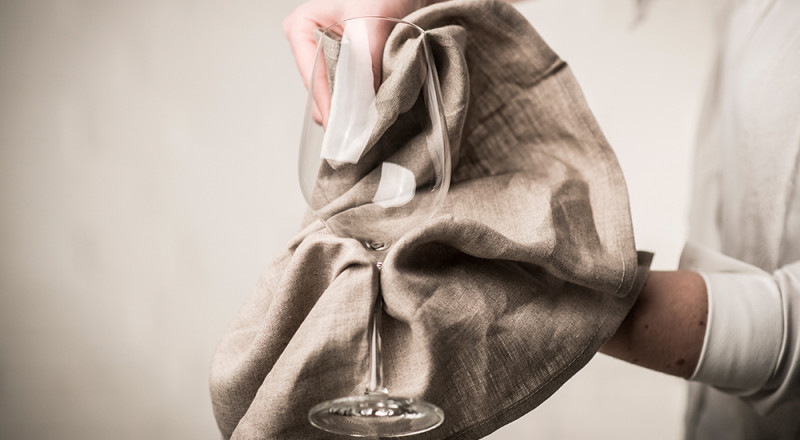This website uses cookies, which are necessary for the technical operation of the website and are always set. Other cookies, which increase the comfort when using this website, are used for direct advertising or to facilitate interaction with other websites and social networks, are only set with your consent.
Configuration
Technically required
These cookies are necessary for the basic functions of the shop.
"Allow all cookies" cookie
"Decline all cookies" cookie
CSRF token
Cookie preferences
Currency change
Customer recognition
Customer-specific caching
Individual prices
Language detector
Matches with only "mag"
Selected shop
Session
Comfort functions
These cookies are used to make the shopping experience even more appealing, for example for the recognition of the visitor.
Note
Search for packstation/post offce (Bing Maps)
Store Locator
Statistics & Tracking
Affiliate program
Facebook Pixel
Track device being used
Handling & Care
Handling & Care

Glass Care: Keeping your glasses brilliant with perfect cleaning
Though our glasses are manufactured with passion and in accordance with highest industry standards, it should be emphasized that each product is made of glass which, in itself, is a brittle material which, if not handled properly, may break or crack. We, therefore, kindly ask and encourage you to carefully read the below guideline on care and cleaning of your glasses to ensure a long lasting and unmistakable product experience:
Dishwasher
- Set the rinsing temperature between 50°C and 55°C.
- A maximum temperature of 65°C must not be exceeded. Do not set the rinse temperature below 50°C either.
- Use short rinse programmes. Longer programmes lasting several hours are not recommended.
- Check filter inserts, nozzles and spray arms for cleanliness.
- Keep all food residue out of the dishwasher.
- Use a larger detergent dose for dried-up food residue.
- Apply softening, partial or full desalination agents depending on water quality.
- Open the dishwasher promptly after the rinse cycle to allow steam to escape.
Dish towel
- Use dish towels made of lint-free material. Pure linen or microfiber are best.
- Never use your polishing cloth for other purposes to avoid odour and grease residue.
- Launder dish towels without adding starch and fabric softener as a general rule.
- Try our company’s special polishing cloths for perfect cleaning – we will be pleased to provide further information.
Polishing
- Avoid leaving fingerprints when taking glasses out of the dishwasher.
- Lift glasses by their stem or foot when removing them.
- Polish the bowl and foot of thin-walled and handmade glasses separately to avoid breakage.
- Never hold the glass by the base plate when cleaning the bowl. The pressure may lead to breaking the stem.
- Hands must be absolutely clean. Keep paper towels near the dishwasher to encourage hand washing and drying.
- Never breathe on glasses or spray them with cleaning agents. Lightly moisten them with water vapour instead.
Inspection
- Visually inspect your polishing results by carefully holding the glass up to light.
- The brilliant clarity of crystal glasses brings out the best of a wine‘s colour.
Especially for the gastronomy
- According to DIN 10511: Food hygiene - Commercial glass washing with glass washing machines.
- Only wash glasses that are labelled as "dishwasher-safe" or "dishwasher-suitable" in a commercial glasswasher.
- Special glasswashing machine with circulated detergent solution as well as fresh water rinse and rinse aid solution recommended.
- Temperature in the cleaning tank must be at least 55°C for hygienic reasons.
- As the durability and usability of a drinking glass is influenced considerably by the temperature, the temperature of the detergent solution should not significantly exceed 60 °C. The temperature of the rinse aid solution should be 65 °C ± 2 °C. Glasses are very sensitive to temperature. Temperature jumps can shorten the life of glasses.
- 90 seconds cleaning time recommended for a brilliant and hygienic rinsing result.
- Depending on the water quality, softening, partial or full demineralisation is recommended.
- Use of plastic baskets or sheathed wire baskets recommended for secure holding of glasses. Baskets with appropriate compartment division and height to match our glasses are available.
- Improper placement of the glasses in the glass baskets or contact between glasses can cause scratches.
- Open the dishwasher immediately after washing. Do not leave glasses in the dishwasher overnight.
- Do not dry or polish washed glasses manually so as not to jeopardise the (hygienic) cleaning result by reintroducing germs and to avoid glass breakage and the risk of injury.
- Keep the drying time of the residues as short as possible to limit the multiplication of germs and to facilitate cleaning.
- Avoid placing drinking glasses on top of each other in the cupboard, as this can lead to scratches and glass breakage, especially at the top rim.
- Allow your glasses to cool to room temperature before pouring cold beverages.

